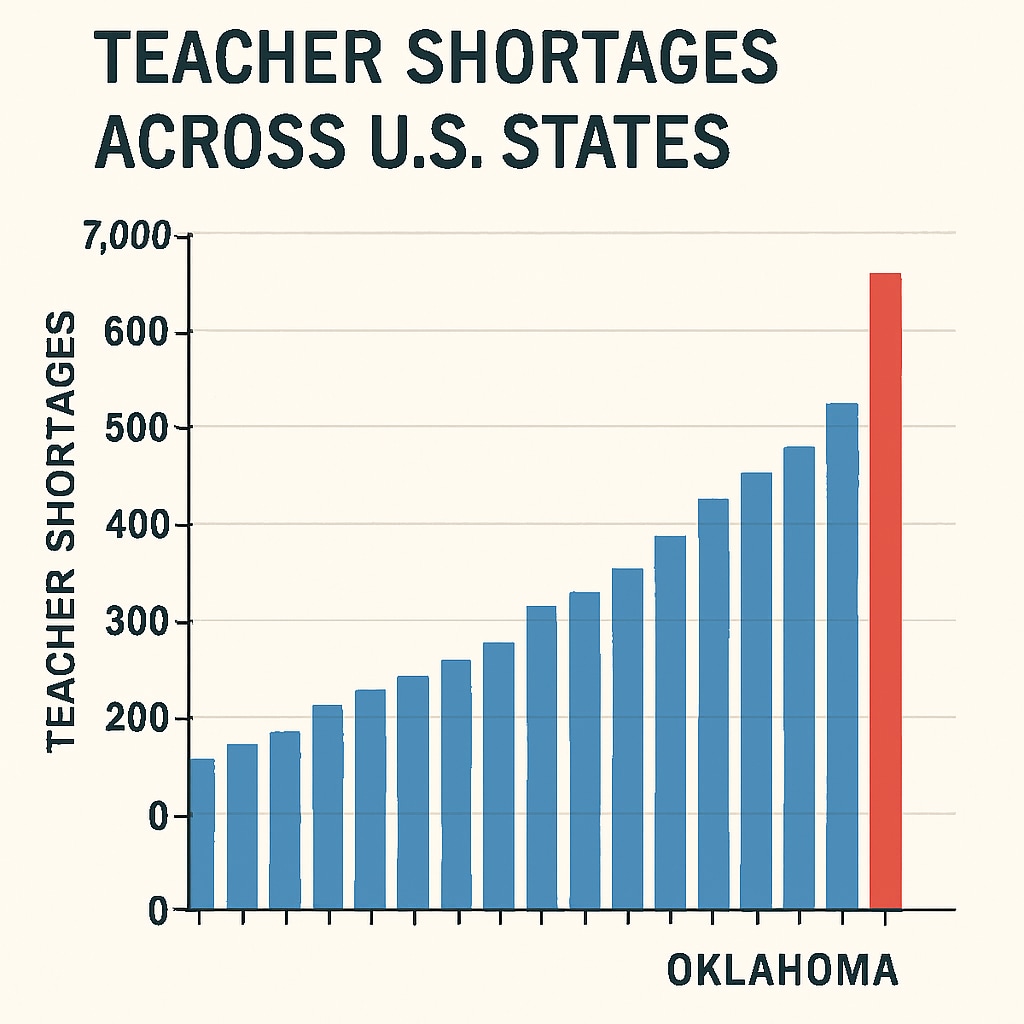Oklahoma has introduced a controversial policy that requires out-of-state teacher applicants to undergo political inclination tests. This initiative has drawn significant attention, with critics questioning whether such measures uphold education neutrality or impose ideological control. While proponents argue that the policy ensures alignment with local values, opponents fear it may restrict professional autonomy and discourage qualified educators from seeking positions in the state.
Understanding the Political Screening Policy
Oklahoma’s political screening for teacher applicants aims to assess whether candidates align with the state’s cultural and ideological standards. The policy involves a series of questionnaires and interviews designed to evaluate applicants’ political beliefs and social values. State officials argue that this approach ensures that educators adhere to community norms and maintain a consistent educational environment.
However, this policy has raised concerns among educators and advocacy groups. Critics argue that such screenings could lead to discrimination based on political viewpoints and undermine the principles of academic freedom. Furthermore, there are questions about the subjectivity of the evaluation process and whether it can be implemented fairly.

The Impact on Teacher Recruitment and Retention
One of the most significant implications of this policy is its effect on teacher recruitment. Oklahoma already faces challenges in attracting qualified educators, particularly in rural areas. Adding political screening to the application process may deter talented teachers from applying, especially those from states with differing political climates.
As a result, the state risks exacerbating existing teacher shortages. A report from the National Center for Education Statistics highlights that teacher shortages are a growing problem across the United States. Policies like Oklahoma’s political screening could further widen the gap between demand and supply in education.

Balancing Education Neutrality and Professional Autonomy
Oklahoma’s policy brings to light a broader debate about the balance between education neutrality and professional autonomy. On the one hand, supporters believe that teachers should reflect the values of the communities they serve. On the other hand, critics argue that enforcing political conformity undermines the diversity of thought that education is meant to nurture.
To strike a balance, policymakers could consider alternative approaches. For example, instead of political inclination tests, states could emphasize training programs that help teachers understand and respect local cultural contexts without compromising their personal beliefs. Additionally, transparency in the screening process and clear guidelines could reduce concerns about bias and discrimination.
For further insight into the challenges of maintaining educational neutrality, see Academic Freedom on Britannica and Teacher Shortages on Wikipedia.
Looking Ahead: The Future of Teacher Policies
As Oklahoma’s political screening policy receives national attention, other states may consider similar measures. This trend could reshape how teacher recruitment is managed across the country. However, it also raises critical questions about equity, diversity, and the role of education in fostering independent thinking.
Ultimately, the success of such policies will depend on their ability to balance the needs of communities with the rights of educators. Policymakers must ensure that efforts to maintain cultural alignment do not come at the expense of education quality and inclusivity.
In conclusion, Oklahoma’s approach serves as a cautionary tale for the complexities of integrating political considerations into education. By addressing these challenges thoughtfully, states can promote both community values and the professional integrity of educators.
Readability guidance: This article uses short paragraphs, evenly distributed transition words, and lists where applicable to summarize key points. It avoids excessive passive voice and long sentence structures while maintaining a professional and engaging tone.


